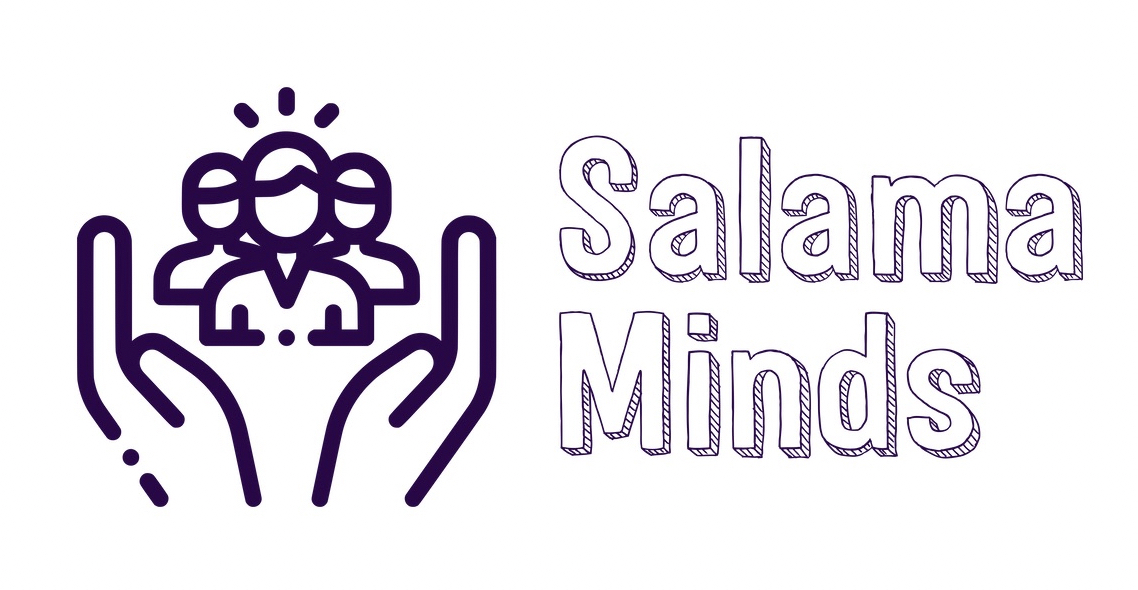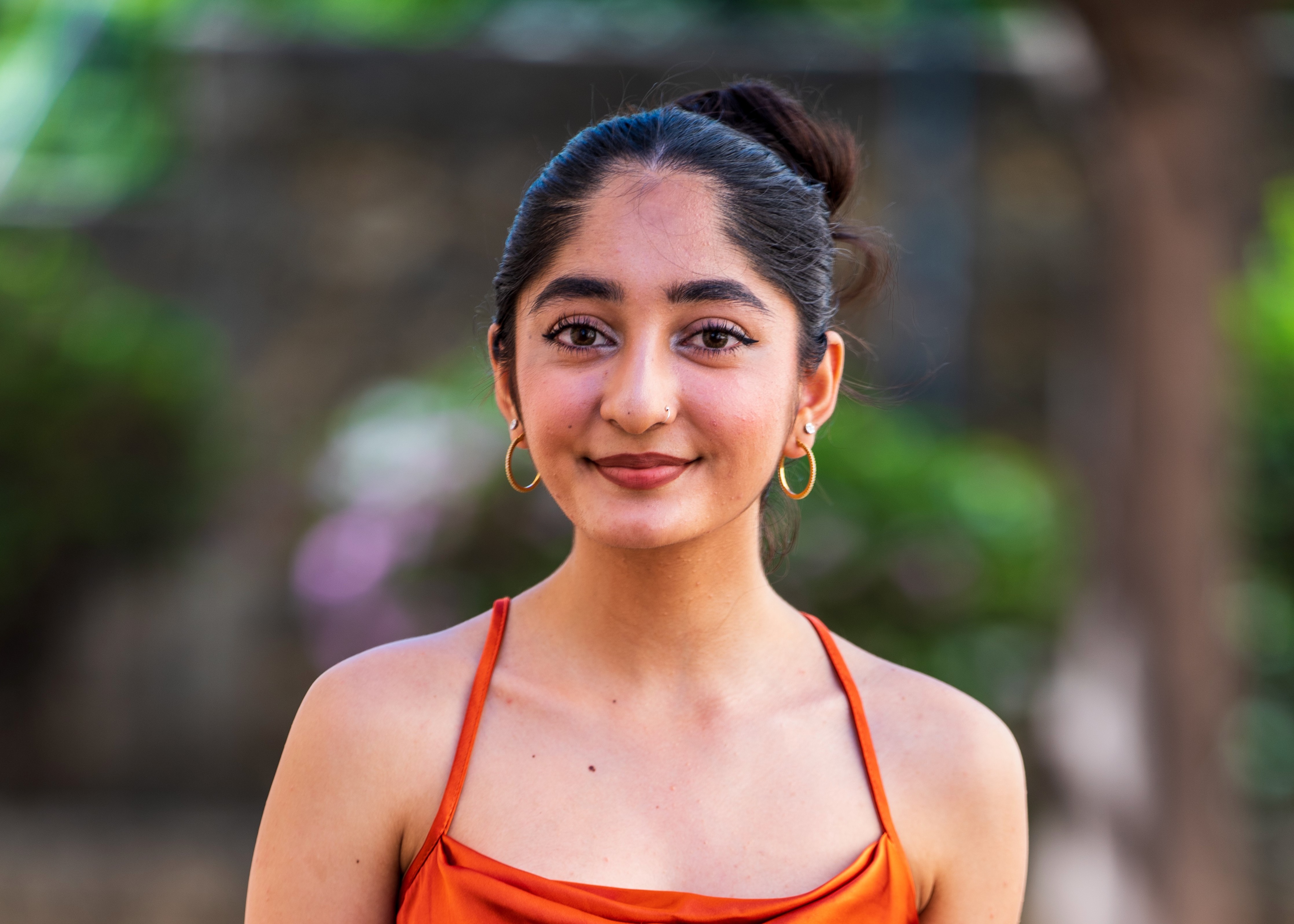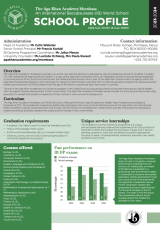Academy alumna creates organisation offering free counselling services for youth
Growing up in an environment where mental health is sidelined, 18-year-old Khushbu Kotak, an alumna from the Aga Khan Academy (AKA) in Mombasa, Kenya, believed her feelings and opinions were often suppressed, leading her to feel unsupported mentally and emotionally. After going through counselling herself, Khushbu took to social media to raise awareness on mental well-being for the youth in her community. Seeing the positive response she received from her peers, Khushbu decided to start a free counselling service for youth called Salama Minds, which has benefited over 20 people so far.
Salama Minds, with the word ‘salama’ meaning ‘safe’ in Swahili, began in November 2020 and offers virtual counselling sessions to individuals between the ages of 11-22 years in Kenya, regardless of their socioeconomic background. The sessions, which cost 1,500 Kenyan shillings, or under US$ 15, are fully funded by the organisation through donations from sponsors and are conducted by trained and certified counsellors. According to Khushbu, Salama Minds has helped 25 individuals, which she says is just the beginning.
“I empathise with anyone struggling with mental health problems,” Khushbu said. “I wanted to provide a safe space to encourage young people to open up about how they truly feel, express the issues they face and receive help. I believe therapy is for everybody. We all need some clarity in our lives and someone professional who can guide us through the journey of life.”
According to Khushbu, individuals who are interested in partaking in the services offered by Salama Minds can fill out a general questionnaire form on the organisation’s Instagram account, which is kept confidential and reviewed by the organisation and the three certified therapists it works with. Once the form is submitted, Salama Minds reaches out to the individual to learn more about them and to match them with a psychologist or psychiatrist best suited for their wants and needs.
For individuals under 18 years old, the organisation connects with the individuals’ parent(s) or guardian(s) before proceeding. Meetings for parents and other interested people are also held by the organisation’s Chief Operating Officer Nisha Kotak, Khusbu’s mother, which gives more insight into the support provided by the organisation and how to become more sensitive and supportive of mental health well-being.
“For the longest time therapy was considered a crazy idea that was not really welcome, especially in our Kenyan setting,” said Dr Mildred Adhiambo, one of the counsellors working with Salama Minds. “It didn’t make sense, especially for the older generation, to talk about your issues with a random stranger. Salama Minds, through their network of specialists, has managed to help a lot of young individuals going through different life challenges by equipping them with the necessary skills and resources to help the overcome and get back to their normal lives.”
Khushbu’s efforts at destigmatising mental health well-being also became a part of her academic life as she incorporated it into her International Baccalaureate (IB) coursework offered by AKA Mombasa. In addition to this, Khushbu worked with the Academy’s Head of Student Support and Well-being Minal Shah to find ways to grow Salama Minds and incorporate new strategies to better support people's mental well-being.
“We all feel overwhelmed at different points in our lives and to be able to have an avenue to be heard, reflect and sometimes to just be, can help with the fuzziness that we may feel,” Minal said. “Khushbu has consistently been focused on well-being and has always been an advocate for mental health, which is also evident as she paired her passion with her IB coursework to design this referral system.”
For Salama Minds’ future, Khusbu is envisioning big things. In July 2021, she received a US$ 950 scholarship to take part in a virtual Global Citizens Initiative (GCI) Leadership Ethics Advocacy Design Thinking (LEAD) Challenge. This programme empowers global citizens like Khushbu – who is also a fellow of the programme – to be lifelong leaders for positive change. Khusbu said she plans to pitch Salama Minds to the GCI this month with the hope of receiving adequate funding for the organisation. Her immediate plan for now is to transition the virtual counselling sessions to in-person sessions, which were done so due to the COVID-19 pandemic, so individuals receiving counselling can have more intimate sessions and benefit more from it.
In addition to this, as Khusbu ventures to Dalhousie University in Halifax, Canada this upcoming fall, she said she hopes to expand Salama Minds beyond Kenya for youth all over the world. She also said she sees the challenges the organisation has faced so far as opportunities of growth that boost her confidence and faith in the organisation overall.
“Therapy is really expensive, and young people are in need of it,” Khushbu said. “My long-term goal is to make Salama Minds an international and sustainable non-governmental organisation. I continue to believe and learn that every failure I encounter puts me closer to success. And with every obstacle I overcome, I have learned more and more about the way my community works and how to improve my organisation in a way that is beneficial to the community. I hope to take this with me as I go to university so I can grow Salama Minds and make it available for all those who need it.”







